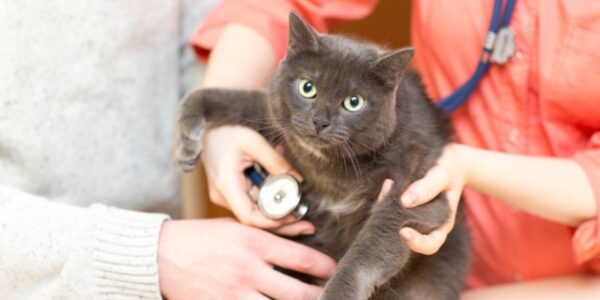We love to see senior cats! Once cats are over 7 years of age they are considered seniors. As your cat ages, you may start noticing some lifestyle or behavioural changes, and whilst this is perfectly normal for older animals, it can be indicative of a health condition.
At Vets on Parker we recommend twice yearly health checks for senior cats. Your precious feline friend ages seven times faster than us so regular health checks are an important part of keeping them comfortable and happy as they age.
Dental disease
Untreated dental disease is very common in senior cats. As your cat ages, regular wear and tear on their teeth and gums compromises their dental health. Most owners assume that if their cat has teeth problems, they will show symptoms. However, in most cases, cats will just learn to eat in a way that avoids aggravating their condition or simply tolerate the pain.
High blood pressure
Suffering from high blood pressure? – Your cat could be too!! High blood pressure is very common in cats and can be associated with elevated thyroid hormones, kidney disease and even blindness. Just like in humans it is easy to measure and can unearth an otherwise silent killer.
Blood testing
Annual blood testing for pets over seven years old is also an excellent way of detecting disease. Kidney and thyroid disease is very common in our aging cats. Unfortunately, cats are the ultimate pretenders and are very good and hiding these illnesses from us. The good news is that we can diagnose these conditions with a simple blood test! Blood can be taken without sedation and test results are received very quickly.
Arthritis
We also often see arthritis in senior cats. This is a painful disease. Happily, arthritis can be easily managed with medication and a few lifestyle changes. Common signs of arthritis in cats include a reluctance to jump, and a cease in grooming habits. If you’ve noticed any of these behaviours in your senior cat, please talk to your vet.




